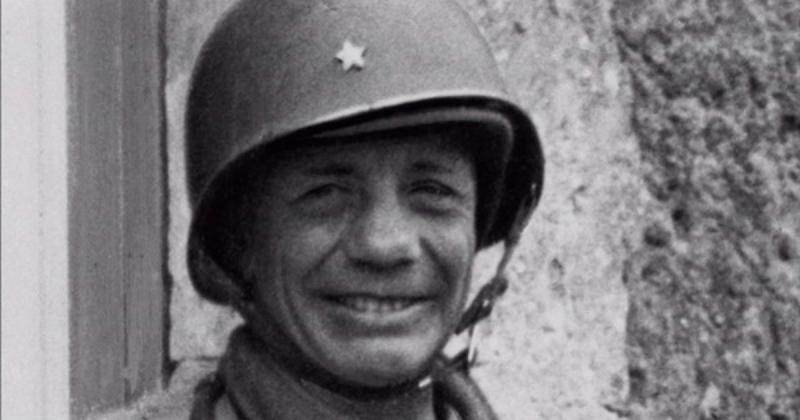Brigadier General Theodore Roosevelt Jr. Took Charge


There were setbacks at Utah, as on every beach. Of the 360 United States bombers sent just before the land ings to bomb the German beach defenses at Utah, 67 did not release their bombs: visibility was too bad. When, at three-thirty in the morning, the men transferred while at sea from their transport ships to their landing craft, many, falling in the heavy swell from the rigging on which they were descending to the landing craft, broke their legs: their equipment weighed almost seventy pounds. Landing three hours later, they discovered that they were more than a mile south of where they should have been. It was the assistant divisional commander, Brigadier General Theodore Roosevelt Jr.—a son of President Theodore Roosevelt and cousin of Franklin Roosevelt— who, having landed with the first wave of the attacking forces, took charge. Rather than reembark and move to the correct landing area, he decided to move inland. Striding up and down the beach, cane in hand, he urged the men forward.

For his actions on Utah Beach, General Roosevelt was awarded the Medal of Honor, one of four awarded on D-Day. His citation notes that despite his high rank, “he personally led a number of groups of soldiers from the beach, over the seawall, and to positions inland where they could establish themselves. … Under his seasoned, precise, calm, and unfaltering leadership, assault troops reduced beach strong points and rapidly moved inland with minimum casualties. He thus contributed substantially to the successful establishment of the beachhead in France.” It was General Roosevelt who led the attack on Blockhouse W5, which Rommel had inspected a month earlier. By chance, the men came ashore in an area less heavily defended than the one where they were intended to land. *
General Roosevelt died of a heart attack shortly after the Utah landings. His brother, an aviator, had been killed in action in the First World War. When the Second World War American National Cemetery was created on the bluff above Omaha beach, his brother’s body was brought from elsewhere in France and reburied next to him. Thirty other pairs of brothers lie side by side in that cemetery. Another eight pairs of brothers are also buried there but in different rows. A father and son also lie side by side, Colonel Ollie Reed and his son Ollie Reed Jr., both killed in Normandy.
from "D-Day" by Martin Gilbert




Roosevelt was not required to go in with the first wave, he wanted to.
Respect
A true warrior.
Wow, another great D-day story i've never heard. Amazing!
Semper Fi Army!
Was this Henry Fonda's character in "The Longest Day"?
I'm afraid a lot of my knowledge of D-day come from there.Yup. That was it. Google's my friend......